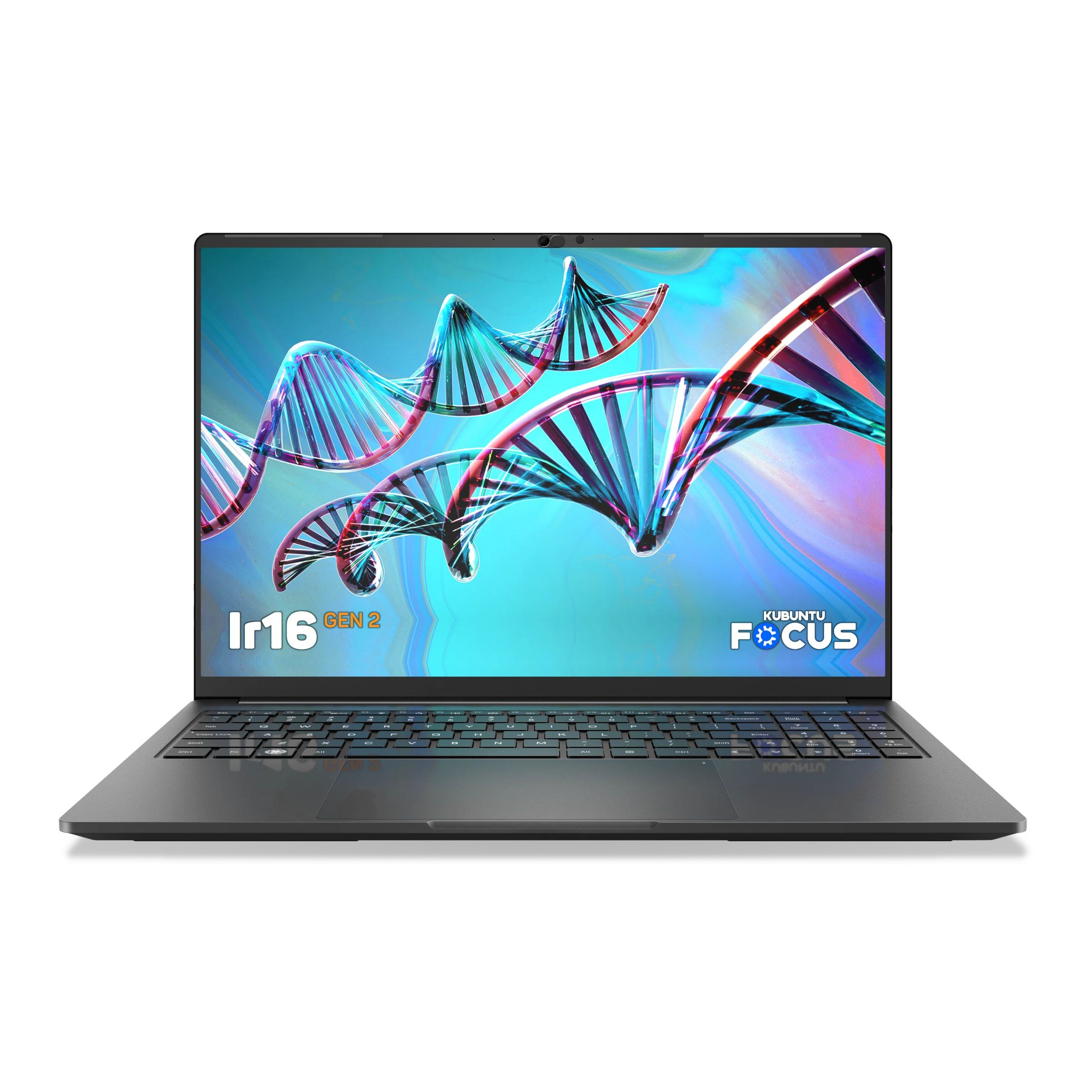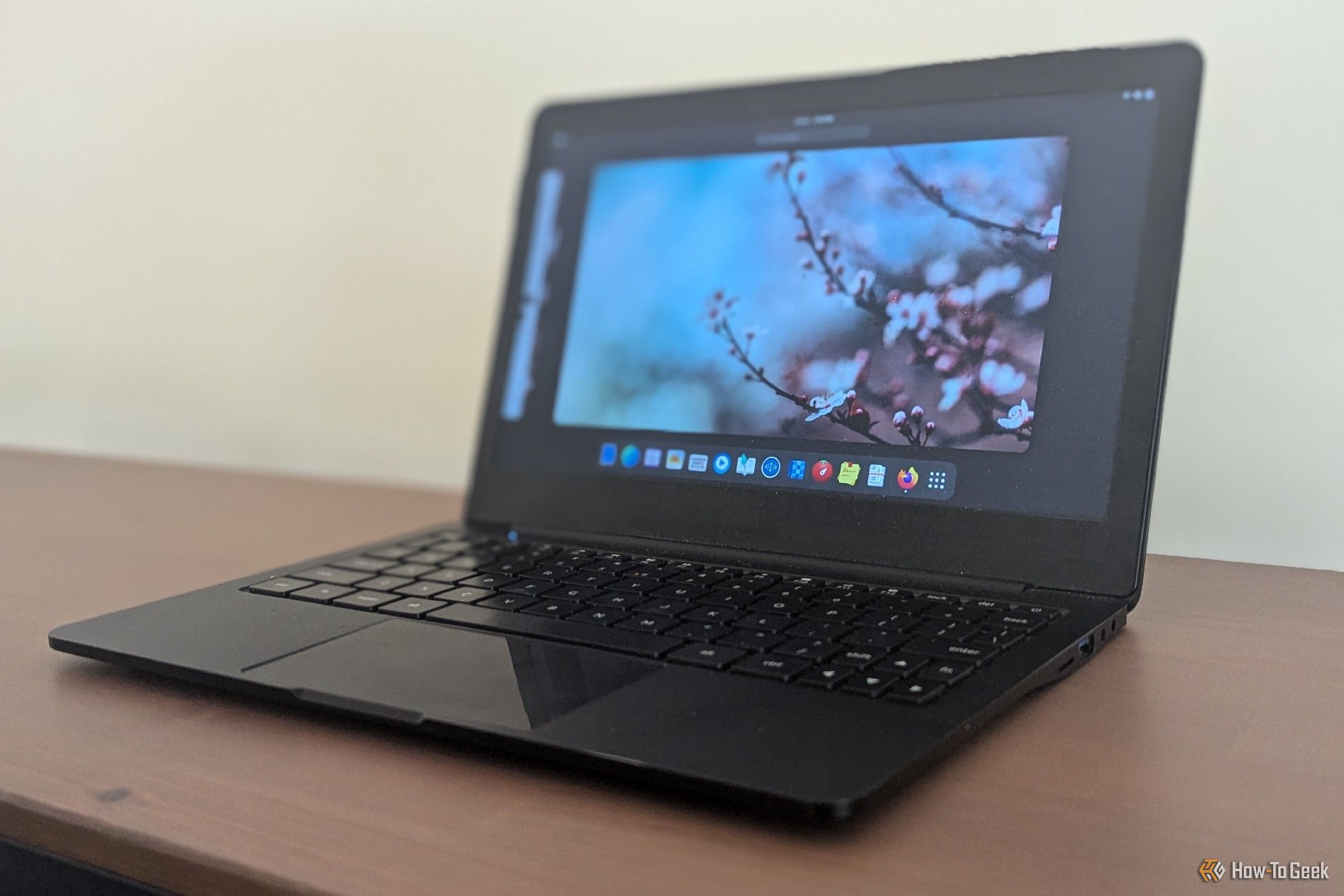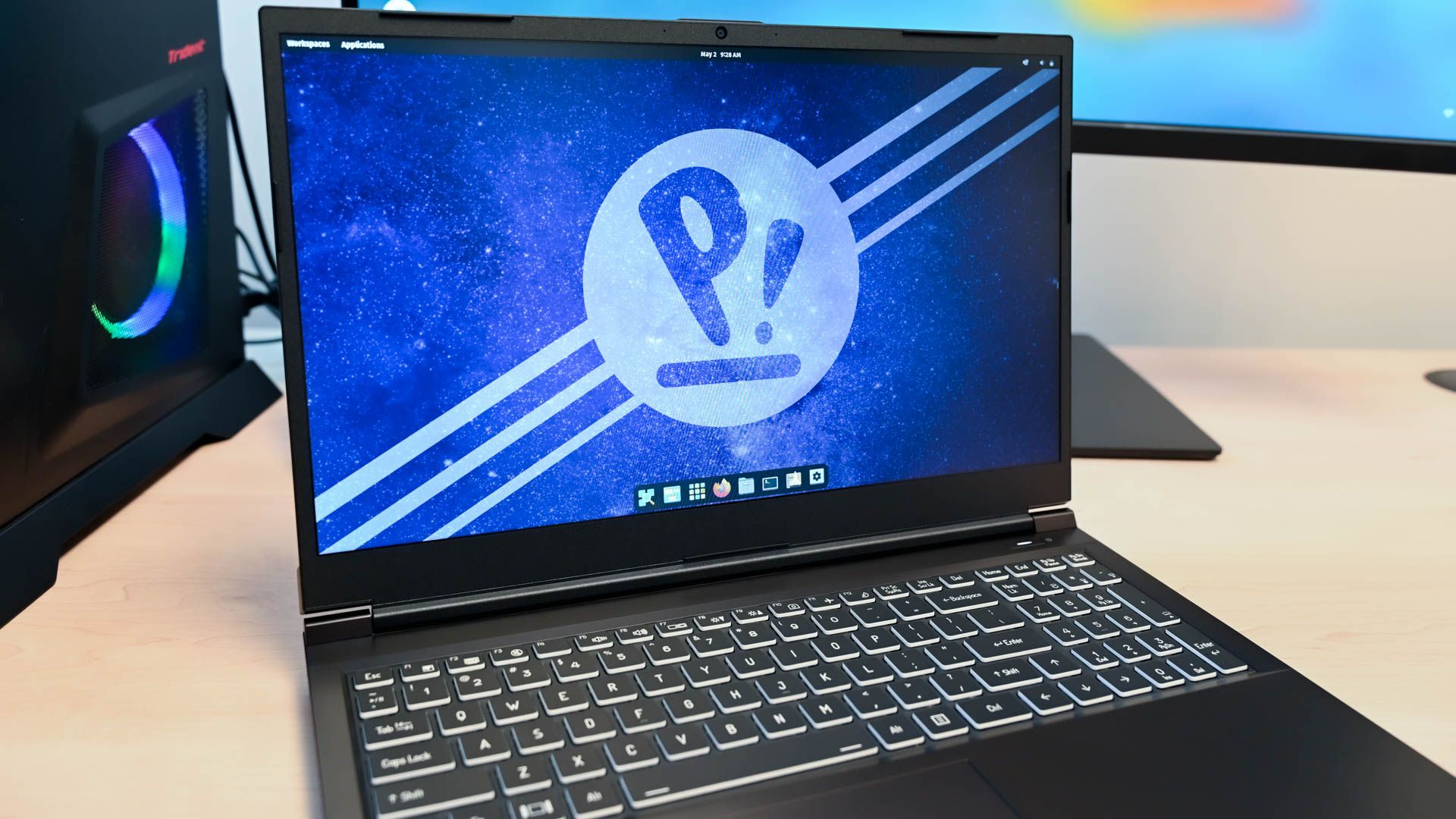Key Takeaways
- Installing Linux on existing PCs is free, but buying a computer with Linux pre-installed can save time.
- Buying Linux PCs removes the need for technical know-how, expanding the potential user base.
- Purchasing a Linux PC provides you with hardware support and invests in the Linux ecosystem.
One of the perks of Linux is that both the operating system and the vast majority of apps are free. Yet if you try to buy a PC that comes with Linux, you might end up spending more than buying one with Windows. Why spend that extra money when you can install Linux on an existing computer for free?
I know it seems counterintuitive, but when the time comes to buy a new computer, I almost exclusively buy Linux PCs. I’ll explain.
Linux Is Guaranteed to Work on These PCs
I’ve used Linux on and off since 2008. For all of that time, Linux has been easy to install. But on some machines, especially newer machines, you run into hiccups after the installation is done. You log in to your new machine only to find that you’re unable to connect to Wi-Fi or your speakers don’t work. Maybe you’re getting poor framerates from your graphics card, or your computer fails to wake up after you pull it out of your bag. There can be any number of issues that arise from installing an operating system onto a machine that wasn’t built for it.
This isn’t a flaw exclusive to Linux. If you try to install Windows onto a Steam Deck, you face the same kind of issues. That machine was designed for Linux and comes with a rock-solid Linux desktop. Most laptops are tested with Windows. When you try to swap out a computer’s operating system, regardless of which one it is, you roll the dice. The same is true when you install a custom ROM on your phone.
To save myself the headache of knowing whether everything will work, I like to buy computers that ship with Linux. This way I know they’ve been tested and verified to run the operating system I intend to use. I don’t have to do any research to learn which processor, Wi-Fi card, and graphics card will work best for the kind of machine I have in mind. I can just browse the available PCs and pick one.
You Don’t Need Technical Knowledge
The trickiest part of installing Linux is learning how to create a bootable USB stick and selecting it during your PC’s boot process. After that, installation isn’t that different from installing PC software in general.
If what I just said makes sense to you, you probably have enough computer savvy to do a few web searches, find a guide, and work it out.
Yet for you that may instead be a nonstarter. You’re not alone; most people fall into this category. You didn’t have to install Windows, macOS, or ChromeOS, so trying to install an operating system yourself can seem intimidating.
Yet that doesn’t mean you can’t use Linux. At this point, Linux, once installed, is as easy to figure out as all the others. Often, it’s easier. Linux doesn’t come with ads in the app launcher or pop-up windows trying to sell you things. There isn’t bloatware the manufacturer shipped just to make money.
Having Linux PCs available for purchase expands who is able to use Linux. Yes, these laptops tend to be priced out of the mainstream due to the laws of scale, but at least the option is there.
No Need to Configure Your Own System
Many Linux users will tell you the best thing about Linux is choice. There are hundreds, if not thousands, of different versions of Linux. Two Linux computers sitting side by side can run entirely different desktop interfaces and a fundamentally different suite of apps.
Before you even install Linux, you have to first decide which version you want. That alone can lead to analysis paralysis and put people off. There’s a whole set of Linux terminology to learn. Buying a Linux PC skips this process. You get a computer that’s already up and running, where someone else made the decisions so you don’t have to.
Folks like me already know which version of Linux we want, but we can still benefit from getting a pre-made machine. Many of us can’t afford to reconfigure a machine during work hours, and we don’t have the energy or the desire to do it during the rest of our day. We have families. We have other things we want to be doing. With a ready-made machine, we can sign in, install apps, transfer over our files, and be ready for work in the morning.
When you install Linux yourself, the internet is often your first and only line of support. When anything goes wrong, it’s on you to scour the web for articles, forum postings, wikis, or YouTube videos that can help. This can be a great learning experience, but it can also be a time suck. There’s also no guarantee that you’ll find a fix.
When you buy your computer from a company that prides itself on assembling and selling Linux hardware, you can usually go back to them for support. Sometimes that’s a live chat bubble or an email address. You may even be able to pick up a phone. If they can’t fix your issue directly, sometimes they can at least point you in the right direction.
I’m not saying they’re miracle workers; customer support is what it is. Though you may find you actually get better support from these small companies than trying to reach out directly to the massive conglomerate that made your Windows PC or the big box store that sold it.
A Way to Support the Linux Ecosystem
I deeply value free and open source software (FOSS). Its value imprinted early in my life when I first discovered apps like Firefox, GIMP, and OpenOffice. They gave me everything I needed to complete school work and explore my creativity at a time when I was too young to have a credit card for buying proprietary software (and my parents were hardly going to let me use theirs, especially since they didn’t understand what all this computer stuff was about).
In a world that increasingly requires working with computers, it’s important that access isn’t limited only to those with the money for expensive software. Yet if the software is free, how do we compensate the developers? Unlike “free” proprietary apps, the FOSS apps developed for Linux do not contain ads, tracking, or any methods of monetizing development.
If you can donate to developers, please do. It helps. Buying a Linux PC is just one way to help. No, it doesn’t funnel money toward your favorite apps, but it does put money toward a company that is invested in and sometimes contributing to the same software ecosystem. Companies like Purism, System76, Tuxedo, and Endless hire developers who create Linux code and share their work with the broader community.

Kubuntu Focus Ir16 (Gen2)
The Ir16 GEN 2 marries the enterprise-class hardware from Carbon Systems with the meticulous OS integration and Linux-first support from Kubuntu Focus.
Avoid Giving Big Tech Even More Money
Few tech giants actually need your money. Apple, Google, and Microsoft have all been taken to court for monopolistic practices. Dell, HP, Lenovo, and Samsung are all massive corporate entities. In the tech world, it’s not often you get to shop small or buy local for your primary computer.
Many Linux PC makers are small shops. They hire a handful of employees or maybe grow large enough to employ a couple hundred people. They often ship internationally but are scattered in various places around the world. There may be one not that far from you.
Linux PCs used to be pretty generic. Many of them were machines from a company called Clevo, with each applying a different sticker on the back and swapping out the components under the hood. Many still do this, but a number are supplying their own custom hardware.
I’m typing this on a StarLite MK IV from Star Labs, and I’m eyeing the newer StarLite, which is now a Surface-style tablet PC. I’ve owned a Librem 13 from Purism, which came with hardware kill switches before those were more common-place. These are all machines that, when I sit them down next to my wife’s MacBook, don’t look like relics from the past. Linux hardware has come a long way.
Sometimes you buy a Linux PC to save yourself the headache of installing things yourself. Sometimes you buy one out of the goodness of your heart. Sometimes you buy one because, like with the Steam Deck, the device is just that good.






